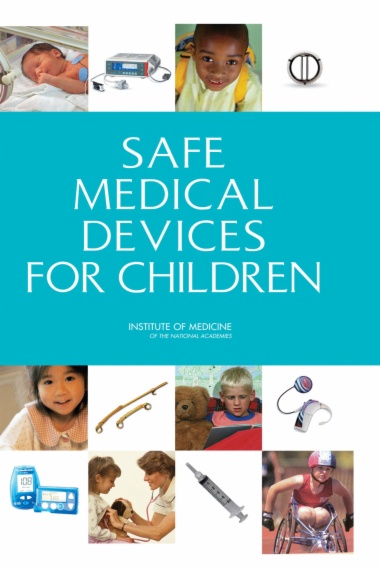Innovative medical devices have helped reduce the burden of illness and injury and improve the quality of life for countless children. Mechanical ventilators and other respiratory support devices rescue thousands of fragile newborns every year. Children who once would have died of congenital heart conditions survive with the aid of implanted pacemakers, mechanical heart valves, and devices that close holes in the heart. Responding to a Congressional request, the Institute of Medicine assesses the system for postmarket surveillance of medical devices used with children. The book specifically examines:
- The Food and Drug Administration's monitoring and use of adverse event reports
- The agency's monitoring of manufacturers' fulfillment of commitments for postmarket studies ordered at the time of a device's approval for marketing
- The adequacy of postmarket studies of implanted devices to evaluate the effects of children's active lifestyles and their growth and development on device performance
Postmarket surveillance of medical devices used with children is a little investigated topic, in part because the market for most medical products is concentrated among older adults. Yet children differ from adults, and their special characteristics have implications for evaluation and monitoring of the short- and long-term safety and effectiveness of medical devices used with young patients.
- Cover
- Front Matter
- Summary
- 1 Introduction
- 2 Medical Devices for Infants, Children, and Adolescents
- 3 Regulatory Framework for Postmarket Surveillance of Medical Devices
- 4 Identifying and Understanding Adverse Medical Device Events
- 5 Monitoring of Postmarket Study Commitments Involving Medical Devices
- 6 Adequacy of Pediatric Postmarket Surveillance Studies
- 7 Children and Medical Device Safety: A Shared Responsibility
- References
- Appendix A Study Origins and Activities
- Appendix B Medical Devices for Pediatric Care
- Appendix C The Dynamics of Pediatric Device Innovation: Putting Evidence in Context
- Appendix D Questions and Methods in Surveillance Programs
- Appendix E The Regulatory History of Cerebrospinal Fluid Shunts for Hydrocephalus
- Appendix F Cochlear Implants in Children A Review of Reported Complications, Patterns of Device Failure, and Assessment of Current Approaches to Surveillance
- Appendix G Glossary and Acronyms
- Appendix H Committee Biographical Statements
- Index

